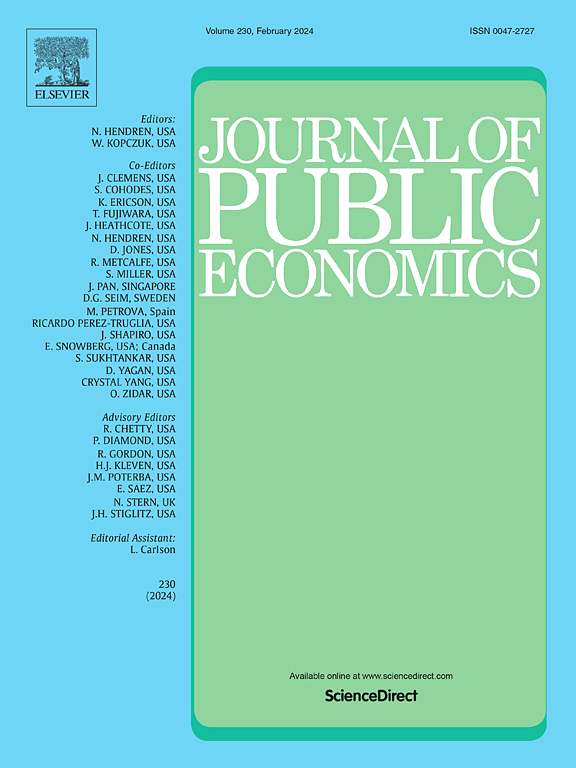竞赛式政治竞争与地方保护主义:来自中国的理论与证据
IF 4.8
1区 经济学
Q1 ECONOMICS
引用次数: 0
摘要
我们认为,在区域分散的威权政体下,辖区间的竞争扭曲了地方政治家在其所在城市和竞争城市的企业之间进行资源配置的动机。我们开发了一个项目选择的竞赛模型,该模型捕捉了地方保护主义的驱动力。该模型有力地预测了区域溢出和政治竞争动机的共同存在将导致资源配置偏向于竞争区域。结合独特的数据集,我们在中国城市政府采购分配和企业股权投资的背景下测试了我们的模型预测。研究发现:第一,当地方政治家的政治竞争越激烈时,他们分配给竞争城市企业的政府采购合同越少;第二,地方企业,特别是地方国企,内化了地方政客的职业生涯关注,减少了对竞争城市的投资。我们的论文提供了一个政治经济学解释,在一个由锦标赛式政治竞争激励的专制国家中,效率低下的地方保护主义。本文章由计算机程序翻译,如有差异,请以英文原文为准。
Tournament-style political competition and local protectionism: Theory and evidence from China
We argue that interjurisdictional competition in a regionally decentralized authoritarian regime distorts local politicians’ incentives in resource allocation among firms from their own city and a competing city. We develop a tournament model of project selection that captures the driving forces of local protectionism. The model robustly predicts that the joint presence of regional spillover and the incentive for political competition leads to biased resource allocations against the competing regions. Combining unique data sets, we test our model predictions in the context of government procurement allocation and firms’ equity investment across Chinese cities. We find that, first, when local politicians are in more intensive political competition, they allocate fewer government procurement contracts to firms in the competing city; second, local firms, especially local state-owned enterprises (SOEs), internalize the local politicians’ career concerns and invest less in the competing cities. Our paper provides a political economy explanation for inefficient local protectionism in an autocracy incentivized by tournament-style political competition.
求助全文
通过发布文献求助,成功后即可免费获取论文全文。
去求助
来源期刊

Journal of Public Economics
ECONOMICS-
CiteScore
14.10
自引率
2.00%
发文量
139
审稿时长
70 days
期刊介绍:
The Journal of Public Economics aims to promote original scientific research in the field of public economics, focusing on the utilization of contemporary economic theory and quantitative analysis methodologies. It serves as a platform for the international scholarly community to engage in discussions on public policy matters.
 求助内容:
求助内容: 应助结果提醒方式:
应助结果提醒方式:


